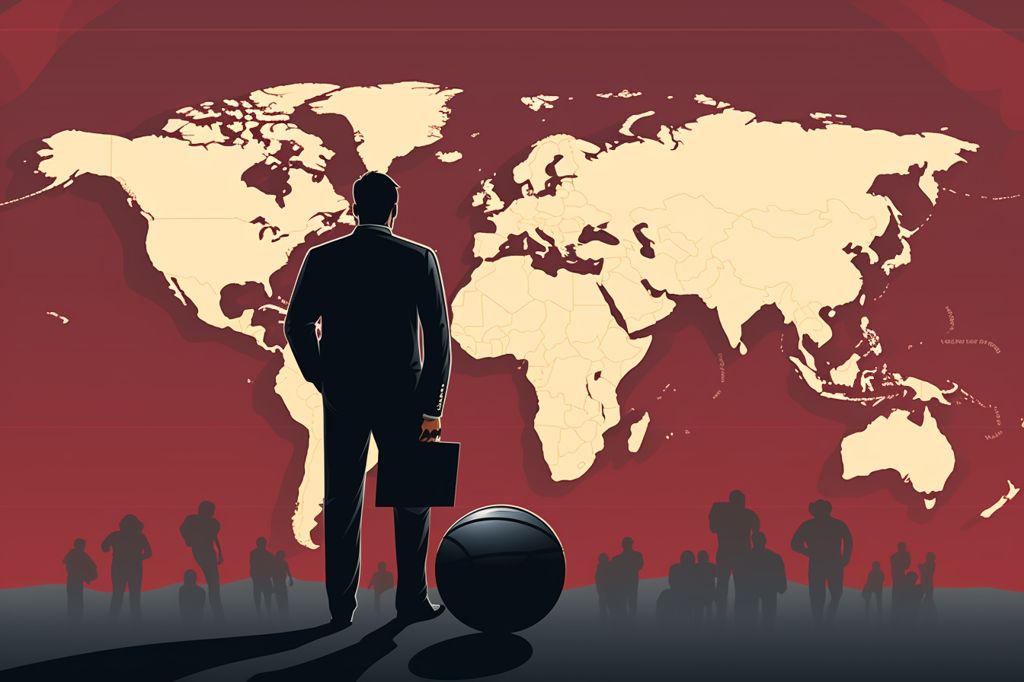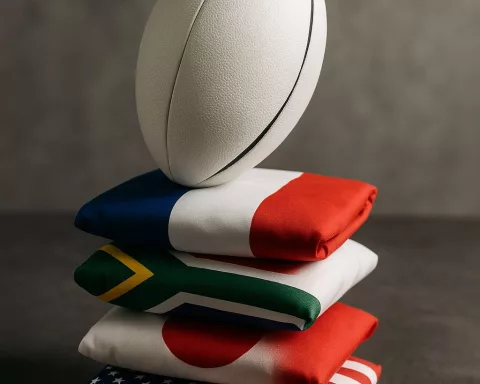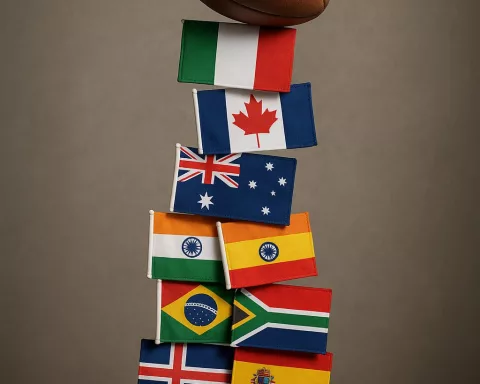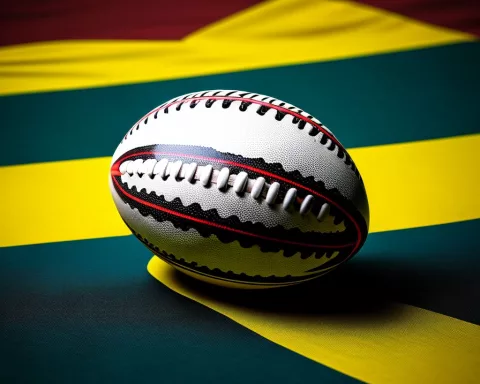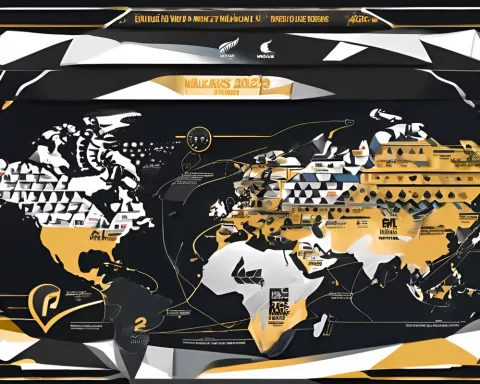As the highly anticipated 2023 Rugby World Cup approaches, rugby fans around the world eagerly await the clash of nations for the coveted William Webb Ellis trophy. While the players competing on the field often take center stage, it is the head coaches who deserve recognition and praise for their significant contributions to their team’s success.
In this article, we take a closer look at the masterminds behind each squad’s journey to rugby immortality, divided into the four pools of the tournament.
Pool A:
France – Fabien Galthié
Former French international scrum-half Fabien Galthié brings vast playing experience to his current role as head coach of the French squad. Galthié, who represented his country 64 times, took over the French team in 2019, aiming to bring the trophy home.
New Zealand – Ian Foster
Ian Foster, a 58-year-old New Zealander, succeeded legendary All Blacks coach Steve Hansen in 2019. Foster will strive to maintain his country’s status as a rugby superpower and defend their position as title holders.
Italy – Kieran Crowley
Kieran Crowley, a New Zealander by birth, has been coaching Italy since 2021. His challenge lies in transforming an underdog team into a formidable opponent on the global stage.
Namibia – Allister Coetzee
Allister Coetzee, a South African native, took over Namibia’s national team in 2021. With his wealth of coaching experience, Coetzee aims to build a competitive side capable of challenging the giants of world rugby.
Uruguay – Esteban Meneses
Esteban Meneses, a 51-year-old Uruguayan, has been leading his home country since 2015. Meneses aims to develop a robust and resilient squad that can stand up to the world’s best.
Pool B:
South Africa – Jacques Nienaber
Jacques Nienaber, a South African native, took over from Rassie Erasmus in 2019, helping South Africa claim the Webb Ellis trophy that same year. Nienaber seeks to defend the title and keep the Springboks at the summit of world rugby.
Ireland – Andy Farrell
Andy Farrell, a former rugby league and union player, began his tenure as Ireland’s head coach in 2022. The English-born Farrell faces the challenge of leading Ireland to their first-ever Rugby World Cup triumph.
Scotland – Gregor Townsend
Gregor Townsend, a Scottish rugby legend, took charge of his national team in 2017. Townsend aims to lead Scotland to new heights in the world rugby landscape by harnessing the talent and determination of his squad.
Tonga – Toutai Kefu
Toutai Kefu, a former Tongan international, has been the national team’s head coach since 2016. Under his leadership, Tonga looks to make waves on the international rugby scene.
Romania – Eugen Apjok
Eugen Apjok, a 51-year-old Romanian, faces the task of guiding his team through a challenging World Cup campaign. His coaching skill will be vital in bringing the best out of his Romanian charges.
Pool C:
Australia – Eddie Jones
Eddie Jones, a seasoned rugby tactician, has coached Australia since 2001 with a hiatus before returning in 2023. The Australian-born coach seeks to bring the Wallabies back to World Cup glory.
Wales – Warren Gatland
Warren Gatland, a New Zealander, has been synonymous with Welsh rugby success since 2007. With a short break from 2019 to 2022, Gatland returns to lead Wales in their quest for their first-ever World Cup title.
Fiji – Simon Raiwalui
Simon Raiwalui, another New Zealander at the helm, took charge of Fiji in 2023. With a talented squad, Fiji is a potential dark horse in the competition, and Raiwalui will seek to guide them to unprecedented success.
Georgia – Levan Maisashvili
Levan Maisashvili, a Georgian native, has been in charge of his national team since 2020. He faces the challenge of leading Georgia through a tough World Cup campaign and making a mark on the international stage.
Portugal – Patrice Lagisquet
Patrice Lagisquet, a 60-year-old Frenchman, has coached Portugal since 2019. His task lies in guiding a lesser-known rugby nation through the rigors of World Cup competition and building a solid foundation for future success.
Pool D:
England – Steve Borthwick
Steve Borthwick, a 43-year-old Englishman, took the reins in 2022. With a talented and ambitious squad at his disposal, he aims to lead England to their second World Cup title.
Argentina – Michael Cheika
Michael Cheika, a 56-year-old Australian, embarked on his tenure with Argentina in 2022. Known for his tactical prowess, Cheika hopes to bring Los Pumas to the forefront of world rugby.
Japan – Jamie Joseph
Jamie Joseph, a former New Zealand international, has coached Japan since 1999 with a break before returning in 2016. Under his guidance, Japan aims to build on their impressive 2019 World Cup performance.
Samoa – Seilala Mapusua
Seilala Mapusua, a 43-year-old Samoan, has led his national team since 2020. As a former Samoa international, Mapusua seeks to elevate the team’s performance on the global stage.
Chile – Pablo Lemoine
Pablo Lemoine, a 48-year-old Uruguayan, has been Chile’s head coach since 2018. Tasked with guiding a lesser-known rugby nation, Lemoine aims to make a lasting impression at the World Cup.
As the countdown to the 2023 Rugby World Cup continues, these head coaches will undoubtedly play crucial roles in molding their teams into formidable forces. While the players may steal the spotlight, remember the strategists behind the scenes, tasked with leading their squads to glory.

